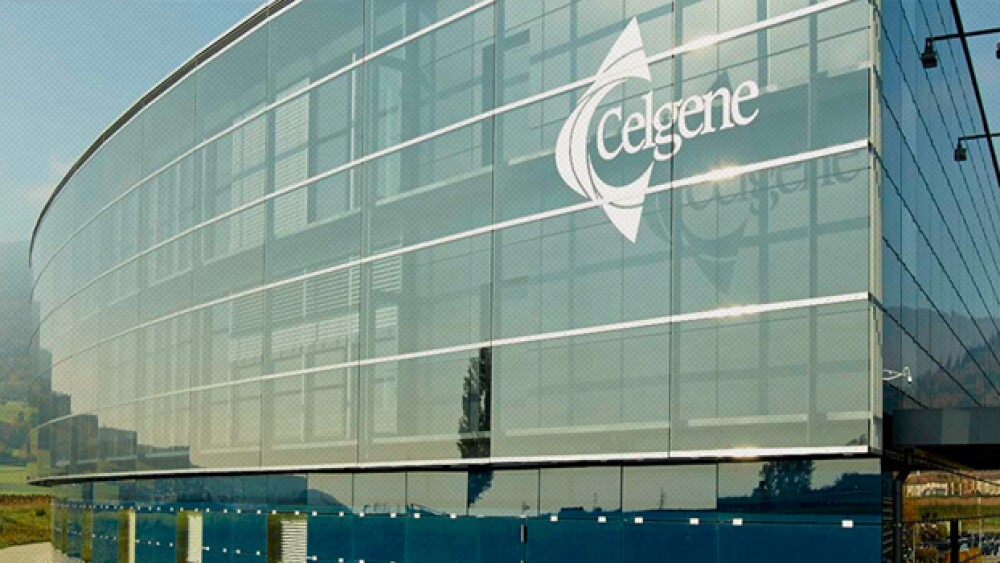The company said it will acquire Impact Biomedicines and its JAK inhibitor program targeting myelofibrosis.
Celgene began the week of the J.P. Morgan Healthcare Conference with a $7 billion announcement. The company said it will acquire San Diego-based Impact Biomedicines and its JAK inhibitor program targeting myelofibrosis.
Privately-held Impact is developing fedratinib, a highly selective JAK2 kinase inhibitor, for patients with treatment-naïve myelofibrosis, a bone marrow disorder that disrupts normal production of blood cells. Impact picked up fedratinib from Sanofi, which cast off the drug in 2013 after patients developed Wernicke’s encephalopathy. Impact Chief Executive Officer John Hood co-developed fedratinib while he served as head of R&D at TargeGen before that company and the drug were acquired by Sanofi. On Sunday, Hood said Celgene is the “ideal organization” to maximize fedratinib’s potential for patients with myelofibrosis.
Celgene made the announcement on Sunday. It will pay approximately $1.1 billion upfront up to $1.25 billion in contingent payments based on regulatory approval milestones for myelofibrosis. The company said additional milestone payments, that would allow the sale price to hit $7 billion, will depend on regulatory approvals in additional indications and sales-based milestones. Those milestones have maximum of $4.5 billion due if annual net sales of Impact’s treatments exceed $5 billion, according to terms of the deal released by Celgene.
In the recently completed Phase III trial, JAKARTA-1 fedratinib demonstrated statistically significant improvements in the primary and secondary endpoints of splenic response and total symptom score, respectively, the company said. In an exploratory subgroup analysis, these improvements were observed regardless of a patient’s baseline platelet count.
“Myelofibrosis is a disease with high unmet medical need as the number of patients who are ineligible for or become resistant to existing therapy continues to increase,” Nadim Ahmed, Celgene’s head of hematology and oncology, said in a statement. “We believe fedratinib is uniquely positioned as a potential treatment for myelofibrosis and it provides strategic options for us to build leadership in this disease with luspatercept and other pipeline assets.”
There were some issues last year with fedratinib that caused the U.S. Food and Drug Administration to place a clinical hold on one of Impact’s trials. In the single-arm Phase II trial JAKARTA-2, fedratinib demonstrated clinically meaningful improvements in splenic response and total symptom score in patients who were resistant or intolerant of Incyte Pharmaceutical’s Jakafi (ruxolitinib), a JAK1/JAK2 inhibitor. JAKARTA-2 was halted prematurely due to some safety, but the clinical hold was removed in August 2017. That hold left Impact with a drug supported by data across 18 clinical trials. Impact has plans to file a New Drug Application with the FDA in the middle part of this year.
The company said based on the reported benefit risk profile of fedratinib from the two clinical trials, regulatory applications in myelofibrosis are planned beginning in the middle of 2018.
John Newman, a healthcare analyst with Canacord, said in a note that Canacord views the Impact Biomedicines acquisition as a “carefully structured transaction with substantial upside assuming FDA approval.”





